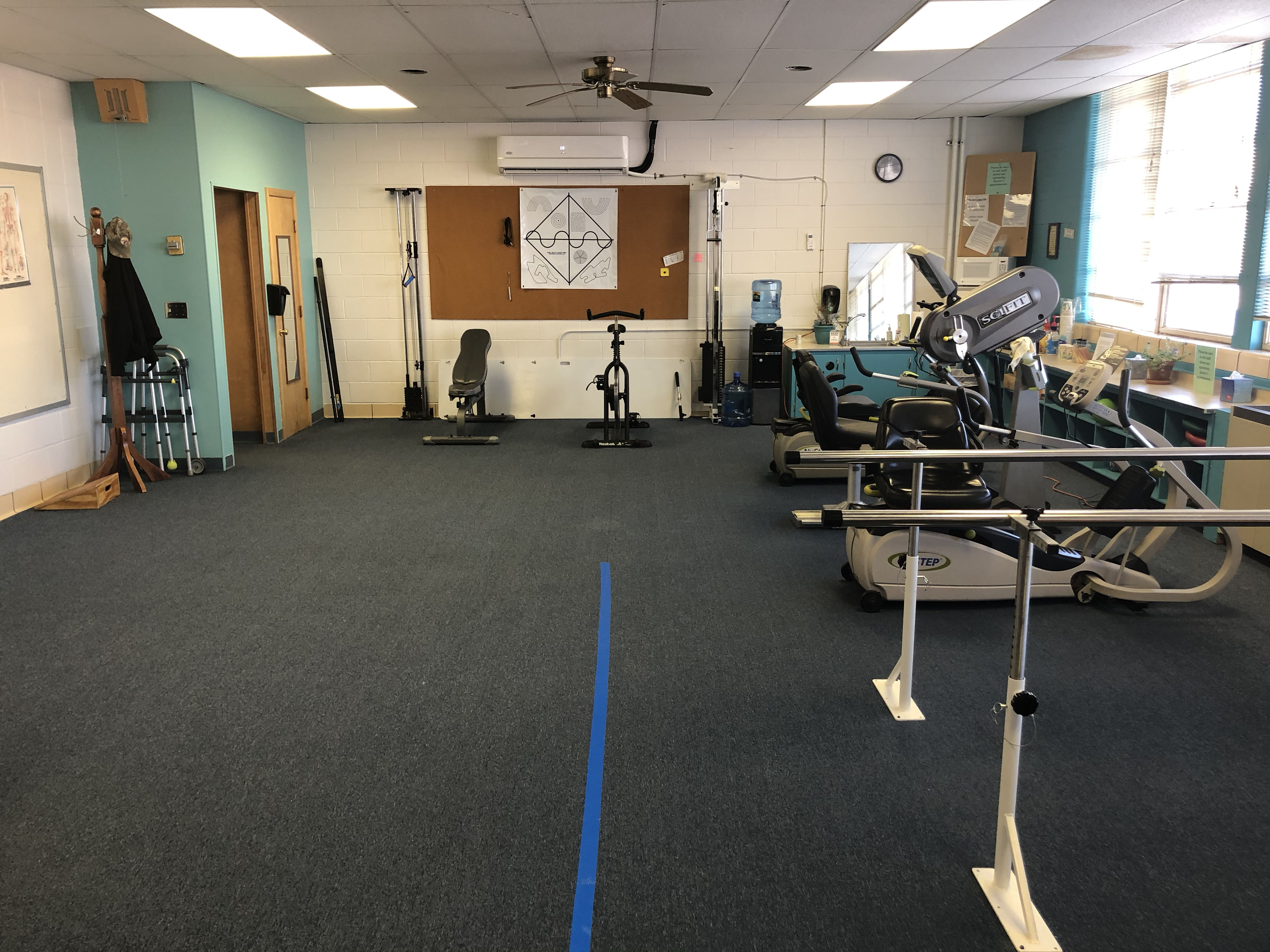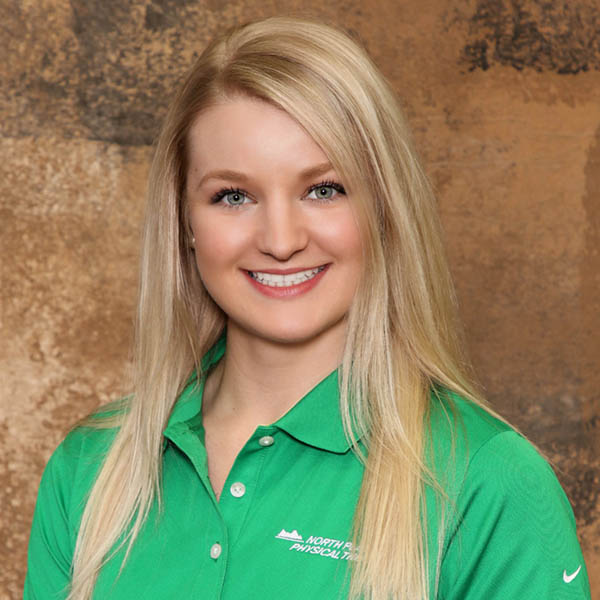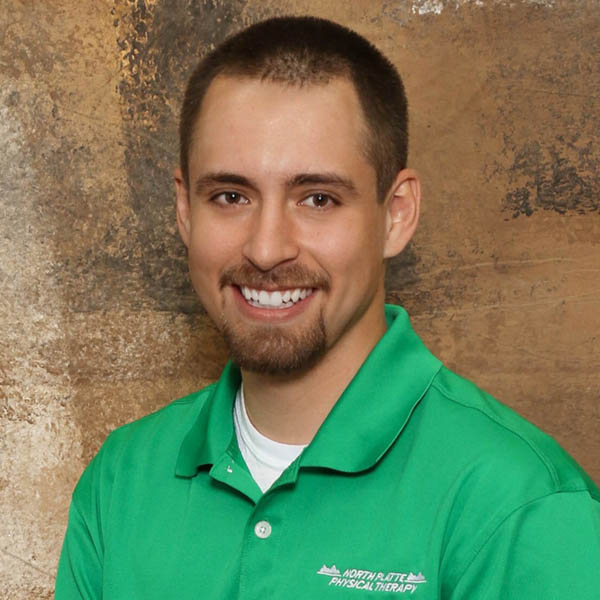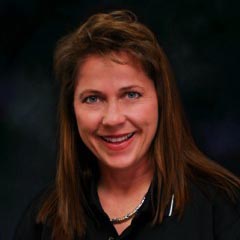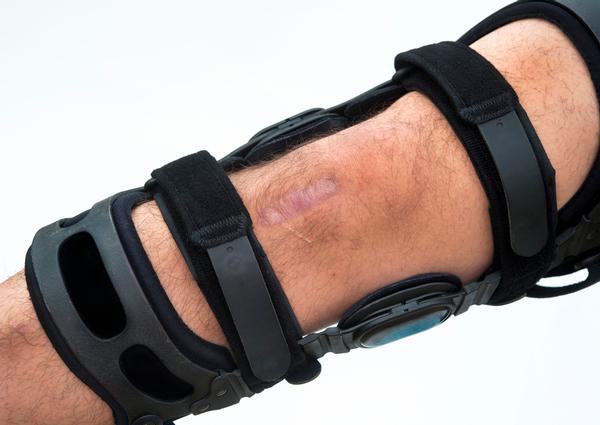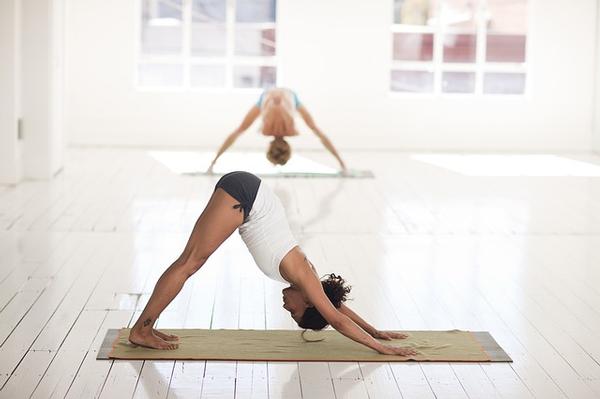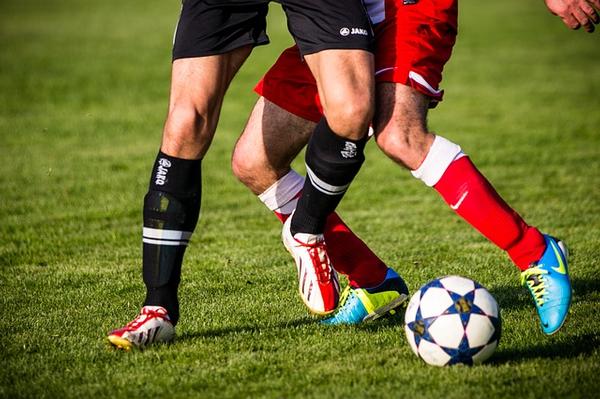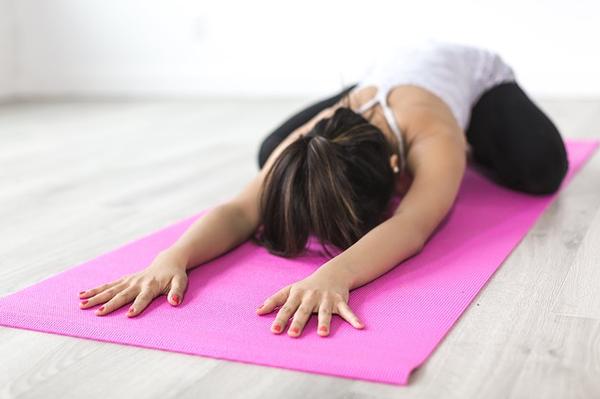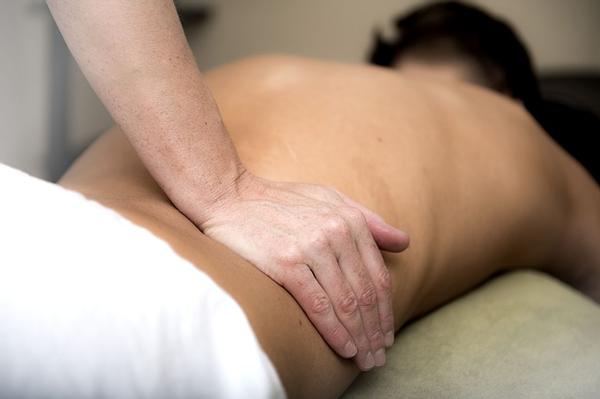Bear Lodge Rehabilitation - Moorcroft
Bear Lodge Rehabilitation in Moorcroft is a satellite clinic of the Sundance Office. We provide outpatient services to all age groups ranging from infants to geriatrics. We provide services to treat orthopedics, sports rehabilitation, vestibular and vertigo among others.
Location Details
Address: Town Center 101 S Belle Fourche, Moorcroft, WY 82721
Hours: Tuesday, Thursday and Fridays from 7:30-11:30; 12:15-3:15
Fax: 307-756-9636
Services Offered
- Arthritis Pain
- Back Pain
- Balance and Vestibular Rehab
- Biofeedback
- Body Mechanics Training
- Chronic Pain
- Cupping Therapy
- Custom Foot Orthotics
- Custom Splinting
- Ergonomic & Worksite Evaluations
- Functional Capacity Evaluations
- Graston Techniques
- Hand Therapy
- Headache
- Kinesio taping
- Modalities
- Myofacial Techniques
- Neck Pain
- Neurological Services
- Orthotic Fabrication
- Orthopedic Service
- Pediatric Therapy
- Post Cancer Treatment
- Pre/Post Surgical Rehab
- Pre-Employment Screening
- Return to Work Screening
- Return to Sport Exercise Programs
- Running Injuries
- SFMA - Selective Functional Movement Assessment
- Spine Care
- Sports Medicine
- Stroke Rehabilitation
- Tendonitis
- TMJ
- Torticollis
- Trigger Point Dry Needling
- Women's Health
- Work Hardening/Conditioning
- Work Injuries
- Worksaver Certified Work Physicals
- Wound Care
Latest News & Info
What you need to know about recovering from an MCL tear
September 18, 2019
MCL (medial collateral ligament) tears are infamous, and very intimidating if you’ve been diagnosed with one. If you are not the one who has been diagnosed with a tear, and it’s your child...this could be even scarier. However, there is no need to worry! MCL tears can be treated, and most the time a fully healed MCL will allow you to resume your normal activities. If you are an athlete, you might not be at full capacity but it does vary person to person! Your Wyoming and Nebraska physical therapist has compiled the things you need to know when recovering from an MCL tear.
First...How do you know if you are injured? If you are unsure on whether you have an MCL tear, the following should cause you to seek help from a medical professional:
What type of tear do you have?Â
The first thing you need to know, and that your doctor will tell you, is what type of tear you have. MCL tears vary in severity from Grade 1 to Grade 3 - with Grade 3 being the most severe. Here is what the grades mean for you:
Grade 1: Ligament is stretched but not torn meaning you should only experience pain and discomfort
Grade 2: Ligament is partially torn, meaning this can cause some instability
Grade 3: Ligament is completely torn, and will cause instability
Knowing the type of tear you have will be important in determining how to treat and heal the ligament. The grade will also affect how quickly you will be able to resume normal activities, and if you are an athlete it’ll determine the likelihood of long term of effects.
Treatment
Once again, the type of treatment you will receive for an MCL injury depends on the grade. But in general, you can expect rehab or even surgery. Rehabilitation for an MCL injury will include:Â
Physical therapy - Your physical therapy will be designed and planned to help improve your range of motion, and slowly restore your knee to its normal functionalityÂ
Support - You’ll most likely need to wear a knee brace
Rest - Make sure that you adhere to your doctor’s recommendations and rest as neededÂ
Surgery is rare when it concerns an MCL injury, and is only used if the ligament and body can’t repair the tear alone. No matter how painful you feel that your injury is, check with your doctor to see if it will be a necessity. All MCL injuries will be treated differently and should be as everyone is different. Once you’ve been diagnosed with an injury, consult us at North Platte Physical Therapy for your physical therapy program. We serve the communities of Wyoming and Nebraska with 22 clinics offering a full range of physical therapy services. Contact us today for more information.
Â
Read More...
First...How do you know if you are injured? If you are unsure on whether you have an MCL tear, the following should cause you to seek help from a medical professional:
- Swelling on and around the knee
- Popping sound upon injury
- Pain/tenderness on and around knee
- Instable feeling - perhaps it feels like it’ll give out or it locks often
What type of tear do you have?Â
The first thing you need to know, and that your doctor will tell you, is what type of tear you have. MCL tears vary in severity from Grade 1 to Grade 3 - with Grade 3 being the most severe. Here is what the grades mean for you:
Grade 1: Ligament is stretched but not torn meaning you should only experience pain and discomfort
Grade 2: Ligament is partially torn, meaning this can cause some instability
Grade 3: Ligament is completely torn, and will cause instability
Knowing the type of tear you have will be important in determining how to treat and heal the ligament. The grade will also affect how quickly you will be able to resume normal activities, and if you are an athlete it’ll determine the likelihood of long term of effects.
Treatment
Once again, the type of treatment you will receive for an MCL injury depends on the grade. But in general, you can expect rehab or even surgery. Rehabilitation for an MCL injury will include:Â
Physical therapy - Your physical therapy will be designed and planned to help improve your range of motion, and slowly restore your knee to its normal functionalityÂ
Support - You’ll most likely need to wear a knee brace
Rest - Make sure that you adhere to your doctor’s recommendations and rest as neededÂ
Surgery is rare when it concerns an MCL injury, and is only used if the ligament and body can’t repair the tear alone. No matter how painful you feel that your injury is, check with your doctor to see if it will be a necessity. All MCL injuries will be treated differently and should be as everyone is different. Once you’ve been diagnosed with an injury, consult us at North Platte Physical Therapy for your physical therapy program. We serve the communities of Wyoming and Nebraska with 22 clinics offering a full range of physical therapy services. Contact us today for more information.
Â
How yoga can help supplement your Wyoming physical therapy regime
September 11, 2019
So you’ve started physical therapy in Wyoming, what’s next? You might be looking for additional ways to supplement your physical therapy, and most physical therapists would even recommend light exercise. A great light exercise routine to start is yoga - it’s low impact, is relaxing, and can be done at your own pace. Here are a few ways that yoga can be a beneficial partner to your physical therapy regime.
Recovery Time
Yoga might be able to speed up your recovery time. Not only will it help get you moving, but yoga improves strength and flexibility without a lot of muscle strain. If you are achy, yoga can help to lessen your pain, give you more flexibility and even provide additional muscle stability.
Treatment
Besides helping treat your current issues, yoga can help treat multiple issues besides your immediate strain or problem you are facing. Try practicing very low impact stretches for beginners, and always consult your physical therapist before incorporating too many difficult exercises or exercises that could potentially harm your injury even further.Â
MindÂ
Exercise in general releases endorphins that can lead you to a happier, healthier, and ultimately omre relaxing life. Nothing can be better for your physical therapy (besides doing your exercises of course), then being relaxed and in a great mental state as you work towards recovery. A relaxed and positive mind does wonders towards managing your pain and recovery.
You might be wondering how to incorporate yoga into your physical therapy routine. As we’ve mentioned, consider consulting your physical therapist first. However, there are a few yoga moves you can start incorporating if you are anxious to get a jumpstart.Â
Everyone’s physical therapy regime varies, and it truly is based on your body. If you are interested in starting a yoga regime while completing a physical therapy regime be sure to contact your physical therapist. At North Platte Physical Therapy, we are here to help meet your needs. We serve the communities of Wyoming and Nebraska with 22 clinics offering a full range of physical therapy services. Contact us today for more information.
Â
Read More...
Recovery Time
Yoga might be able to speed up your recovery time. Not only will it help get you moving, but yoga improves strength and flexibility without a lot of muscle strain. If you are achy, yoga can help to lessen your pain, give you more flexibility and even provide additional muscle stability.
Treatment
Besides helping treat your current issues, yoga can help treat multiple issues besides your immediate strain or problem you are facing. Try practicing very low impact stretches for beginners, and always consult your physical therapist before incorporating too many difficult exercises or exercises that could potentially harm your injury even further.Â
MindÂ
Exercise in general releases endorphins that can lead you to a happier, healthier, and ultimately omre relaxing life. Nothing can be better for your physical therapy (besides doing your exercises of course), then being relaxed and in a great mental state as you work towards recovery. A relaxed and positive mind does wonders towards managing your pain and recovery.
You might be wondering how to incorporate yoga into your physical therapy routine. As we’ve mentioned, consider consulting your physical therapist first. However, there are a few yoga moves you can start incorporating if you are anxious to get a jumpstart.Â
- Staff Pose: A staff yoga pose requires you to sit on the ground with your legs stretched out in front of you - taking deep breaths and working on your spine alignment.
- Chair Pose: Squat as if you are sitting in a pose and place your arms straight above your head. Take deep breaths in and out while looking forward.
- Downward Facing Dog: One of the more common poses, downward facing dog, involves you placing your feet and hands on the ground and placing your body in a “pike position,†once again focusing on spine alignment.
Everyone’s physical therapy regime varies, and it truly is based on your body. If you are interested in starting a yoga regime while completing a physical therapy regime be sure to contact your physical therapist. At North Platte Physical Therapy, we are here to help meet your needs. We serve the communities of Wyoming and Nebraska with 22 clinics offering a full range of physical therapy services. Contact us today for more information.
Â
Preparing your children for fall sports, from your Wyoming physical therapist
September 4, 2019
The kids are going back to school, temperatures are becoming cooler, and sports season is in full-swing. While it might be hard for your children to get back in the swing of things, there are a few things you can do to help - particularly when it concerns conditioning. If you are also participating in some fall intramural sports, consider following these tips as well. Always remember, if you have questions about conditioning contact your local Wyoming physical therapist!Â
Physical Activity
It’s going to be harder for your kids to get back into a fall sport if they haven’t been active up until this point. Year-round physical activity is essential to not only maintaining a healthy lifestyle but also lessening the stress on the body when a sport begins again. We highly recommend that before your child starts their fall sport again, that they partake in light physical activity leading up to the first practice.Â
Goals
What are your child’s goals for this school year? Particularly their sports season? Setting realistic, and achievable, goals will help get everyone excited for the upcoming sports season. Not only this, but it’ll ensure your children go into the sports season with their goals and success at the forefront of their mind. Setting goals will also help teach your child about the importance of working hard to achieve a common goal, as well as discipline. It’s truly a win-win!Â
Gear
Different sports require different athletic gear, and we can almost guarantee that no matter what sport your child is in they will need something. Checking athletic gear prior to the season will ensure you have what you need to be successful. Remember, your child is growing pretty constantly throughout their elementary, middle, and even high school. There is a high probability that you will need to replace their equipment often.Â
PhysicalÂ
If you haven’t gotten one yet, almost all schools require an athletic physical prior to your child’s participation in a sport. The good news is that physicals are a very mild examination. Your primary care practitioner, and/or your physical therapist can complete a physical within twenty minutes or so, and most of the time it requires very little physical activity on the part of your child. Physicals are important in ensuring your child is physically well enough to participate in the sport. But remember, just because your child passes a physical doesn’t mean you should ignore any injury complaints. If there are complaints during a practice, after a practice, or throughout the day - make sure your child sees a doctor.
While everyone’s body is different, the above tips can help your child (and you) get prepared for fall sports. If you ever have questions about a training regime, contact your Denver physical therapist or primary care physician. At North Platte Physical Therapy, we are here to help meet your needs. We serve the communities of Wyoming and Nebraska with 22 clinics offering a full range of physical therapy services. Contact us today for more information.
Â
Read More...
Physical Activity
It’s going to be harder for your kids to get back into a fall sport if they haven’t been active up until this point. Year-round physical activity is essential to not only maintaining a healthy lifestyle but also lessening the stress on the body when a sport begins again. We highly recommend that before your child starts their fall sport again, that they partake in light physical activity leading up to the first practice.Â
Goals
What are your child’s goals for this school year? Particularly their sports season? Setting realistic, and achievable, goals will help get everyone excited for the upcoming sports season. Not only this, but it’ll ensure your children go into the sports season with their goals and success at the forefront of their mind. Setting goals will also help teach your child about the importance of working hard to achieve a common goal, as well as discipline. It’s truly a win-win!Â
Gear
Different sports require different athletic gear, and we can almost guarantee that no matter what sport your child is in they will need something. Checking athletic gear prior to the season will ensure you have what you need to be successful. Remember, your child is growing pretty constantly throughout their elementary, middle, and even high school. There is a high probability that you will need to replace their equipment often.Â
PhysicalÂ
If you haven’t gotten one yet, almost all schools require an athletic physical prior to your child’s participation in a sport. The good news is that physicals are a very mild examination. Your primary care practitioner, and/or your physical therapist can complete a physical within twenty minutes or so, and most of the time it requires very little physical activity on the part of your child. Physicals are important in ensuring your child is physically well enough to participate in the sport. But remember, just because your child passes a physical doesn’t mean you should ignore any injury complaints. If there are complaints during a practice, after a practice, or throughout the day - make sure your child sees a doctor.
While everyone’s body is different, the above tips can help your child (and you) get prepared for fall sports. If you ever have questions about a training regime, contact your Denver physical therapist or primary care physician. At North Platte Physical Therapy, we are here to help meet your needs. We serve the communities of Wyoming and Nebraska with 22 clinics offering a full range of physical therapy services. Contact us today for more information.
Â
Daily exercises for a healthy spine, from your Wyoming physical therapist
August 28, 2019
Whether you injured your back recently, or are just looking to keep your spine and back healthy, there are a few daily exercises/stretches you could be doing daily. The good news is all of these stretches are relatively easy, require little effort, and won’t put a strain on your body. It’s important to practice preventative exercises - not only to keep from getting injured but to help keep any injuries from being too detrimental.Â
Knee to Chest
Lay on your back, on a flat surface, with both heels out on the ground. This will be as if you are laying flat in bed - without the pillow of course! Take a slow, deep breath, and bring your knee to your chest with both arms. Your hands should interlock around the knee, and bring your knee closer to your chest. As you do this, make sure you keep your other leg flat on the ground. Take deep breaths while stretching, and hold each knee to your leg for 30 seconds. We recommend we repeat this two times per leg, but feel free to repeat as needed.Â
Back Flexion
Children might refer to this stretch as a “roly-poly,†but it is known to doctors as a back flexion. While laying on your back, once again on a flat services, bring both knees to your chest and bring your shoulders off the ground. You will want to form a little ball - think of the “roly poly†bug when you do this. You should feel a light stretch in your back.
Cat StretchÂ
Another one of our favorites, the cat stretch can help to stretch out your full spine. You might have encountered this in a yoga class, but get on all fours on the floor (like a cat). You will then alternate between arching your back for five seconds, then letting your back sag to the floor (forming a dip) for five seconds. Do this stretch 4-6 times through to begin to feel relaxed and ready to take on the day.
Chin to Chest
Having neck pain? While standing or sitting, look down until your chin touches your chest and hold for 30 seconds. This will help relieve any back neck pain. As with the knee to chest stretch, we recommend repeating this two times.Â
While these exercises will certainly help you keep a healthy back/spine, it won’t prevent any injury from happening in the future. Always remember to consult your physical therapist or primary care physician if you are worried about sustaining any back/spine injuries - we are here to help. At North Platte Physical Therapy, we are here to help meet your needs. We serve the communities of Wyoming and Nebraska with 22 clinics offering a full range of physical therapy services. Contact us today for more information.
Read More...
Knee to Chest
Lay on your back, on a flat surface, with both heels out on the ground. This will be as if you are laying flat in bed - without the pillow of course! Take a slow, deep breath, and bring your knee to your chest with both arms. Your hands should interlock around the knee, and bring your knee closer to your chest. As you do this, make sure you keep your other leg flat on the ground. Take deep breaths while stretching, and hold each knee to your leg for 30 seconds. We recommend we repeat this two times per leg, but feel free to repeat as needed.Â
Back Flexion
Children might refer to this stretch as a “roly-poly,†but it is known to doctors as a back flexion. While laying on your back, once again on a flat services, bring both knees to your chest and bring your shoulders off the ground. You will want to form a little ball - think of the “roly poly†bug when you do this. You should feel a light stretch in your back.
Cat StretchÂ
Another one of our favorites, the cat stretch can help to stretch out your full spine. You might have encountered this in a yoga class, but get on all fours on the floor (like a cat). You will then alternate between arching your back for five seconds, then letting your back sag to the floor (forming a dip) for five seconds. Do this stretch 4-6 times through to begin to feel relaxed and ready to take on the day.
Chin to Chest
Having neck pain? While standing or sitting, look down until your chin touches your chest and hold for 30 seconds. This will help relieve any back neck pain. As with the knee to chest stretch, we recommend repeating this two times.Â
While these exercises will certainly help you keep a healthy back/spine, it won’t prevent any injury from happening in the future. Always remember to consult your physical therapist or primary care physician if you are worried about sustaining any back/spine injuries - we are here to help. At North Platte Physical Therapy, we are here to help meet your needs. We serve the communities of Wyoming and Nebraska with 22 clinics offering a full range of physical therapy services. Contact us today for more information.
Healing your lower back pain with your Wyoming physical therapist
August 21, 2019
You might have injured your lower back recently, and been referred to physical therapy to help with treatment and recovery. While it might seem overwhelming at first, there is no need to panic. Your physical therapy appointment will help you heal, with little to no pain, and help you get back on your feet and living your life the best way you know how. But let’s talk about what you can expect when it comes to your physical therapy.
There are two forms of physical therapy you might use to treat your lower back pain, and the type of physical therapy depends on your injury. Talk to your Wyoming physical therapist to determine which is best for you, it might even be a combination of the two:
Passive: Passive physical therapy includes the use of ice packs, heating pads, and even electrical stimulation. This form of physical therapy will be less physically taxing, but is equally important in the healing process.Â
Active: Active physical therapy will include light forms of exercise, as well as stretching. You will most likely be in an active physical therapy program for your lower back pain.Â
Time wise, your length of physical therapy can vary. On average, expect anywhere from 4-8 weeks of physical therapy - but once again it can depend on the back injury you’ve sustained. When it comes to your physical therapy regime, be sure to maintain consistent contact with your physical therapist to better understand your treatment program. There are some instances in which you might be required to do light exercises at home - but these should all be low impact.Â
Asking questions can be overwhelming at your first physical therapist appointment, but we do recommend that you ask as many as you need to. Your physical therapist is there to serve as a resource and is ready to help you with any needs you might have. Just remember, everybody is different. Your healing time can be very different than another, even with the same injury. So be sure to stay in close contact with your doctor as well as your physical therapist.Â
At North Platte Physical Therapy, we are here to help meet your needs. We serve the communities of Wyoming and Nebraska with 22 clinics offering a full range of physical therapy services. Contact us today for more information.
Â
Read More...
There are two forms of physical therapy you might use to treat your lower back pain, and the type of physical therapy depends on your injury. Talk to your Wyoming physical therapist to determine which is best for you, it might even be a combination of the two:
Passive: Passive physical therapy includes the use of ice packs, heating pads, and even electrical stimulation. This form of physical therapy will be less physically taxing, but is equally important in the healing process.Â
Active: Active physical therapy will include light forms of exercise, as well as stretching. You will most likely be in an active physical therapy program for your lower back pain.Â
Time wise, your length of physical therapy can vary. On average, expect anywhere from 4-8 weeks of physical therapy - but once again it can depend on the back injury you’ve sustained. When it comes to your physical therapy regime, be sure to maintain consistent contact with your physical therapist to better understand your treatment program. There are some instances in which you might be required to do light exercises at home - but these should all be low impact.Â
- When it comes to preparing for your first physical therapist appointment, we recommend the following:Â
- Wear comfortable clothing that is breathable, and makes it easy to move if necessary
- Be aware that they will most likely take measurements - including your range of motion, current physical fitness, and test of strength
- Be ready to ask plenty of questions - your physical therapist is there to help you and guide youÂ
Asking questions can be overwhelming at your first physical therapist appointment, but we do recommend that you ask as many as you need to. Your physical therapist is there to serve as a resource and is ready to help you with any needs you might have. Just remember, everybody is different. Your healing time can be very different than another, even with the same injury. So be sure to stay in close contact with your doctor as well as your physical therapist.Â
At North Platte Physical Therapy, we are here to help meet your needs. We serve the communities of Wyoming and Nebraska with 22 clinics offering a full range of physical therapy services. Contact us today for more information.
Â
